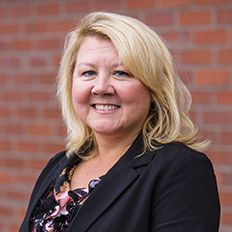
Dycom Industries corporate
travel manager Jennifer Steinke was one of the first and continues
to be among the strongest advocates for mobile travel programs. Why? "Because
I live and breathe by this device," she said, clutching her smartphone. In
providing for Dycom's unique travel needs, she has created what might be considered
a precursor to travel program processes of the future.
BTN: Why is a mobile
travel program so important at Dycom?
Steinke: Dycom is
a construction firm, and the biggest piece of our travel is in hotel for our field
drivers, our people who are on the road building cell phone towers and digging ditches.
They aren't sitting in front of computers. They need a mobile program.
BTN: Yet you signed
with a TMC that didn't have a mobile app.
Steinke: Dycom is
also interesting in that it's made up of 45 standalone companies, and they all have
their own ways of doing things. But the total travel spend isn't the most. I wanted
a TMC that was going to let me be flexible and create the program that I needed
to serve this company. With Short's Travel, I knew I would be a bigger fish in their
pond but also that they have a great track record of innovation. I also knew that
they were far down the road with their mobile app and that I would have the opportunity
to influence the tool as they were bringing it to the market.
BTN: How did you do
that?
Steinke: David [LeCompte,
Short's Travel CEO,] and I have worked on innovation together before—even before
I was a client. This time I really pushed him to make the mobile app simple, make
it easy. Make sure travelers can book hotels. Make sure there's a one-page policy
if someone forgets what they're supposed to do. Make it sleek and easy to look at
itineraries.
BTN: In the past,
you used traveler messaging to manage what you coined "the consumption portion
of the trip." Are you doing that with the Short's Travel app?
Steinke: David has
actually built out the mapping functionality; the chat function and messaging out
for duty of care and en route procurement will be coming very soon.
BTN: Do you care about
your travelers using other apps?
Steinke: We provide
mobile devices to all our field guys, and we only push out the apps that we want
them to have. We push out Short's Travel app, an expense app and a virtual card
app. We don't really see them going other places.
BTN: Since most of
your travel volume is hotel, I assume the virtual card supports that?
Steinke: The Department
of Transportation regulates how long our drivers can be on the road and when they
have to stop driving. The tricky thing is: Travelers don't necessarily know where
they are going to be at that time. They have to have flexibility to get off the
road, find a hotel and be able to pay for that hotel. We signed with CSI GlobalVCard
to give our drivers a mobile payment solution. They can book the hotel on the mobile
travel app, pay with the virtual card and then present an image of that card at
the front desk. Of course, we are still dealing with faxes when it comes to hotels;
let's not even get into that. But having the ability to re-fax a confirmation to
the hotel through the payment app sort of automates that piece. But the point is
that they can't really plan, so we have to have a program that will work for them
on the fly.
BTN: Dycom's necessity
sounds like a precursor to the travel program of the future, when travelers will
expect a program to be flexible enough to accommodate them and pay on the fly.
Steinke: That has crossed my mind. As we get deeper into
artificial intelligence and machine learning that can recommend flights and hotels
or just tell the traveler, "This is your best flight, this is your best hotel,"
based on where they are and how their company wants them to travel. Then the process
will book and pay for them. That kind of capability—and those expectations from
a new generation of travelers—may finally drive travel managers to embrace mobile.